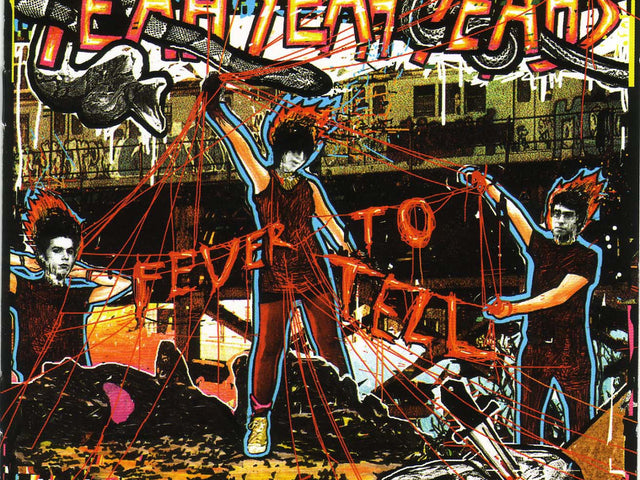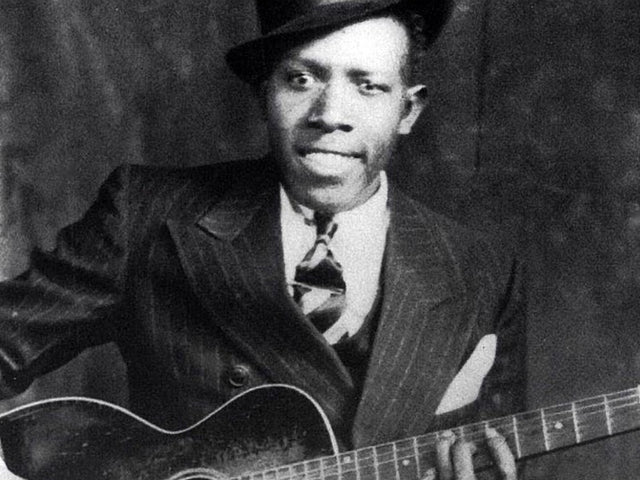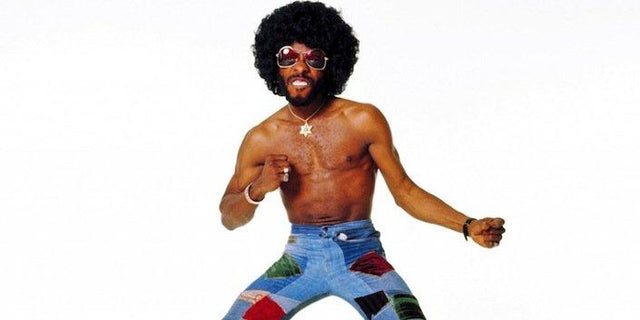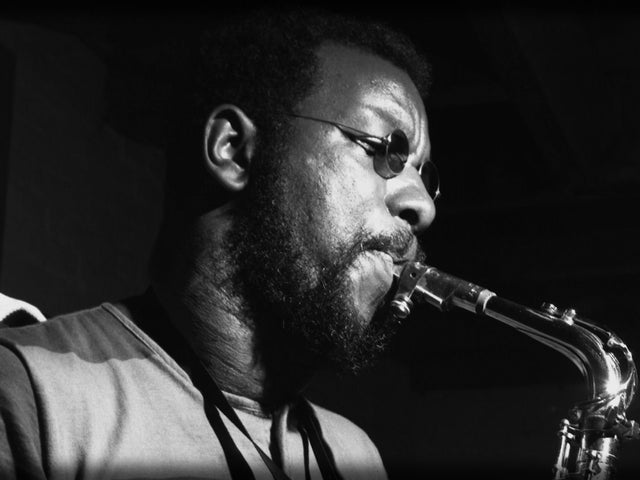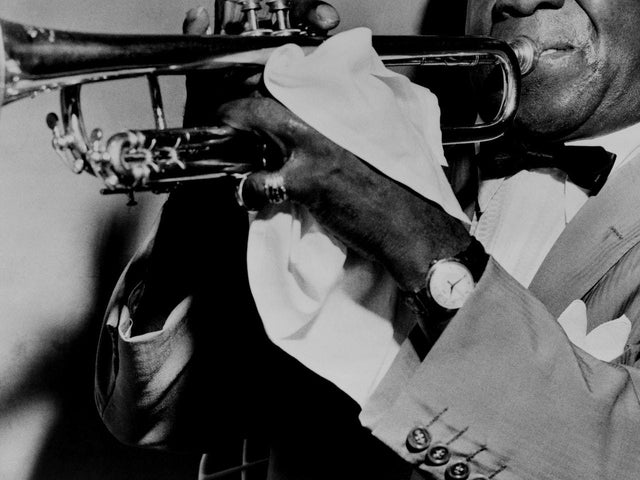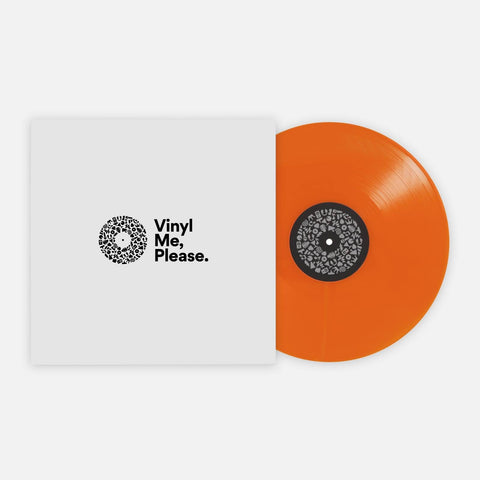Netflix not only destroyed the traditional video rental business, it completely altered the way fans consume stand-up comedy. Almost every current comedian aims to land an hour-long special on the digital network, or to take their talents to HBO or Showtime if Netflix passes. Because of the popularity of digital comedy specials, stand-up itself, at least in its recorded form, has shifted almost entirely to a visual medium. The era of standups recording their live sets and mixing them onto vinyl, cassette or CD may have mostly passed, but some of the greatest comedy sets of all time remain available only in the album format.
This list contains 10 of the most essential stand-up comedy albums to own on vinyl. It skews toward comedians from the 1970s and ’80s, because that’s the time period when comics released albums instead of video specials, as well as the heyday of vinyl. The list also includes some newer acts, and a variety of comics that span the wide scope of the stand-up comedy art form.
There’s an intimate quality about listening to stand-up on vinyl. It’s similar to listening to music on vinyl, in that the listener is forced to consume the entire piece in chronological order, without the ability to distract themselves by clicking on something else. It also differs from music, however, in that the only thing playing is the sound of the comedian’s voice, accentuated by the cackles and roars of the crowd. It's an intimate experience, and the pleasure of listening to audio recordings of stand-up sets is worth experiencing for those who've grown accustomed to watching video specials in recent years.
Each of the following albums transport the listener to a specific time and place. They fail to capture the energy that undoubtedly buzzed throughout the rooms in which they were recorded live, but they capture as close an approximation as possible to what it must have felt like to be there when it happened. They also each offer the refined perspectives of the comics, varied views on American society and culture. Though stand-up comedy has roots in other countries and has spread throughout the world, in the United States it remains a pure way for Americans to reckon with themselves and their surroundings. These are the 10 performances that did that the best, or otherwise managed to commit that pure, unconscious act of laughter.

George Carlin: Class Clown
Class Clown contains George Carlin’s most legendary bit, “Seven Dirty Words You Can Never Say On Television.” Though the list of words may seem tame now in comparison to what the American public has grown accustomed to hearing from public figures, it was shocking at the time. The bit is a classic example of the way Carlin was able to expose the hypocrisy of humanity, particularly in the American context. Carlin showed the country the ways in which we were giving words power, even though those words had no inherent power themselves.
While “Seven Dirty Words” is the closing bit on Class Clown, the rest of the album contains lighter material that builds to the filthy conclusion. Carlin clearly created Class Clown’s routine in an era when a simple fart sound, devoid of context, was hilarious. He makes tons of strange sounds throughout the album, including knuckle cracks and raspberry noises, all to uproarious applause. Even though none of the noises Carlin makes or the words he uses are scandalous now, it’s clear they were at the time. And the ways in which he uses them still resonate.
Class Clown may be known as the on-record moment Carlin shifted to an anti-Vietnam War hippie countercultural figure, the spiritual continuation of the fearless rebel pioneer Lenny Bruce. Yet it also contains elements of the pure goofy side that brought him fame in the first place. It’s that combination of lighthearted charm and cutting social commentary that made Carlin, alongside his contemporary, Richard Pryor, one of the greatest to ever speak funny words into a microphone.

Richard Pryor: …Is It Something I Said?
Only Carlin fans might argue that Richard Pryor is not the greatest stand-up comedian of all time. Any of Pryor’s albums could be considered essential to own on vinyl. 1975’s …Is It Something I Said? just happens to be his best.
The album’s content could be somewhat difficult to digest so many years later, with Pryor using period-specific language and cultural references, as well as the occasional homophobic slur. Still, it’s clear how much his cadence and stage presence impacted an entire generation, and influenced subsequent generations of stand-up comedians. Pryor tells absurd stories and makes light of racial tension throughout the album, and it’s satisfying to hear his presumably mixed audience laughing along with him.
The strangest part of …Is Something I Said? is the track called “Mudbone,” which comes about halfway through the LP. It consists of the introduction of the titular character who would go on to become a legendary recurring part of Pryor’s act. Mudbone has a country accent and hails from Peoria, Illinois, where Pryor was actually born. The crowd at the New Jersey casino where the LP was recorded seems uncertain about Pryor’s unusual turn into the Mudbone character at first, but eventually, like Pryor’s wider audience, becomes hooked. Mudbone, like Pryor, is a superb storyteller, and …Is It Something I Said? represents the addition of another strong tool in the master’s toolbox. If you can’t find this one on vinyl, though, pick up any Pryor album. It’s guaranteed to contain some of the best stand-up comedy that’s ever been recorded.

Steve Martin: Let’s Get Small
For fans of a certain (younger) age, it’s tough to imagine Steve Martin as anything but a gray-haired movie star, the guy from Cheaper By The Dozen or Father of the Bride. Although Martin has had his hair color for decades, and has appeared in many films more critically acclaimed than those two, he began his career as a stand-up comedian. And he was one of the most revered stand-up comics in America.
It’s incredible how much Let’s Get Small, recorded in San Francisco in 1977, still holds up. The album represents the beginnings of an absurdist comedic tradition, with Martin doing meta-comedy, aiming one joke specifically at a plumber who may or may not be in the audience, talking in gibberish and stomping around onstage in visual gags that wouldn’t translate to record without the uproarious laughter going on in the background. The energy is palpable throughout Let’s Get Small, and it’s clear that Martin could command any room that he entered.
Let’s Get Small also features Martin’s signature banjo playing, mostly used to accentuate his jokes. He starts and stops songs, fumbles with the strings, and even drops his instrument to ridiculous comedic effect. Martin, unlike Carlin and Pryor, wasn’t the comedian to go see if you were looking for cutting social commentary. Yet he had, and still has, a way of turning audiences on their heads by exploring the utmost absurdity of everyday life.

Bill Hicks: Rant In E Minor
Whereas Martin largely avoided political and social commentary, Bill Hicks avoided everything else. For decades now, Hicks has been the entry point to stand-up comedy for disaffected youth. He chain-smoked onstage while railing against religion, politics and American culture. He particularly skewered the South, where he was from, a subject largely avoided by the New York and L.A.-based comedians of the past. He’s been the voice of reason for anyone who’s ever found anything wrong or upsetting about American culture.
Rant In E Minor is the perfect name for this posthumous album, because rant is what Hicks did best. His rants also almost took on a musical quality, drawing crowds in with his angry Southern drawl. The album also has the bonus feature of containing actual musical transitions and interludes.
Hicks opens Rant In E Minor by saying this will be the final performance he ever does. It’s tongue-in-cheek, of course, but, in retrospect, it’s poignant. Hicks died in February of 1994, just a few months after he recorded the final material for this album. Hicks has found fame with many generations in the years following his death, and this LP surpasses even Dangerous and Relentless—the two LPs he put out while he was alive—in terms of cohesiveness and message.
Many of the subjects Hicks covers are still relevant today, such as abortion, gay people in the military, Rush Limbaugh and patriotism. Even the outdated subjects, like Billy Ray Cyrus, Jesse Helms, Bill Clinton and Waco, still contain material that reflects our modern times. He exposes society for what it is, or was at the time, and we laugh because he’s right.
At points throughout the album Hicks can sound preachy, as if he’s delivering messages with which most modern listeners already agree. But without comedic truth-tellers like Hicks, the general public may not have come to those conclusions so quickly. When he was around, Hicks’ material opened people’s minds. It likely continues to do so today. If not, at the very least, it makes them laugh.

Doug Stanhope: From Across The Street
Doug Stanhope’s From Across The Street dives straight in to his signature form of humor, the kind that makes some people applaud him endlessly and others get up and leave the room immediately. The opening track, called “Funny Thing About Child Porn,” finds Stanhope joking about how child pornography is the only branch of the entertainment industry where the filmmakers aren’t concerned with getting credits. The joke is quick and funny but clearly unfinished. He’d later write in his book This Is Not Fame that he forgot to get to the punchline entirely. That dark, gritty messiness is what characterizes Stanhope’s comedy, and From Across The Street is full of it. “Not everyone’s going to enjoy this show, settle in,” Stanhope says at the end of the opening track. “Even more people will not enjoy this CD,” he says at the beginning of the next.
Stanhope is known for his drunken rants about taboo subjects, the kind of truth-bearing thoughts that make squeamish people more uncomfortable than they thought they were capable of becoming. Stanhope is angry and abrasive throughout From Across the Street, railing against “blogs” like this that dissect his work and nihilistically exposing human beings as the self-destructive people that they’ve come to be.
Stanhope has long fought Bill Hicks comparisons throughout his career, claiming he’s better than Hicks because Hicks never had a personal point of view. It’s a good point. Both comedians excel at exposing the darkest aspects of American society. But Stanhope digs deeper, baring the darkest and most human elements of his own self, using personal references to which all of American society can inevitably relate. Stanhope recorded From Across The Street in 2009. That’s relatively late in his longstanding career, but the LP arrived at a time when his refined point of view was finally coming fully into focus.

Sarah Silverman: We Are Miracles
We Are Miracles, recorded in Los Angeles in 2013, was, surprisingly, Sarah Silverman’s first HBO special. Unlike most video specials, the set was also released on vinyl via Sub Pop Records. Even though Silverman had built up a lengthy career of strong material before this album, it still contains some of her best work.
We Are Miracles covers Silverman’s favorite topics: sex, politics and religion. She’s as foulmouthed as Stanhope, but delivers her viewpoints in a calmer and more calculated manner. She opens the album by talking about her nighttime porn ritual, then segues into her next bit, titled “Speaking of Cum, My Mother’s Been Sick.” She has an entire track dedicated to rape jokes that’s clearly intended to make people uncomfortable, while still being told in a thoughtful, sarcastic manner.
Silverman has become somewhat of a more outspoken activist in recent years, campaigning for Bernie Sanders and launching the political Hulu show I Love You, America. She’s remained hilarious throughout all of her political endeavors, as well as during her acting career, but We Are Miracles is a reminder that the stage is where she’s most comfortable.

Mitch Hedberg: The Complete Vinyl Collection
Some critics deride Mitch Hedberg as a Steven Wright knockoff, but that’s never been a valid comparison. That’s as simplistic as saying Stanhope sounds like Hicks or Carlin ripped off Lenny Bruce. Hedberg and Wright may have similar styles, but they are wholly different comedians.
Hedberg had the most unique voice of his generation, offering witty, at times absurd one-liners and jumping from topic to topic with ease. He had an obvious drug problem that ultimately ended up killing him at the young age of 37, which is sad and awful, but he managed to record a wealth of influential comedic sets while he was still here. This Complete Vinyl Collection contains all three of Hedberg’s albums—Strategic Grill Locations, Mitch All Together and the posthumous Do You Believe In Gosh?—as well as a photo book and several other special materials.
There are too many classic lines throughout Hedberg’s discography to recount here, and typing them would take away from the way he delivered them in his breezy, mumbling voice. Hedberg packed insightful observations about everyday life into quick, punchy jokes, getting his message across in a fraction of the time it would take other comedians. His influence can be felt throughout the alt-comedy scene of the mid- to late-aughts, and his jokes remain timeless even 13 years after his untimely death.

Rodney Dangerfield: No Respect
“No Respect” is the phrase most commonly associated with Rodney Dangerfield, so it’s no surprise that this LP happens to be his best. The album consists of two tracks, “No Respect,” and “Son of No Respect.” On both of them, he riffs on that theme in his relaxed, confident yet self-deprecating, old-school New Yorker style.
Some of the material on No Respect is homophobic, but even the 1980 audience sounds audibly uncomfortable with those jokes. Much of the material, like Dangerfield saying a girl was “so ugly,” and the audience responding “How ugly is she?” has become cliché and hacky. But it only got to that point because Dangerfield did it first, and he did it with such ease. His references to classic characters like “Dr. Vinny Boombatz” are still hilarious, and his interactions with the audience are quick-witted and gently insulting. It’s obvious that, despite the album’s title, Dangerfield was getting the respect from the audience that he deserved.
Dangerfield found success late in his life, after an unexpected appearance on the Ed Sullivan Show catapulted him to fame. Dangerfield recorded No Respect at Dangerfield’s, the New York comedy club he helped open and named after himself. The LP became the peak example of Dangerfield’s brand of stand-up, titled after his signature phrase and featuring his classic delivery. His jokes and method of telling them may seem outdated, but it’d be disrespectful to claim that they don’t still land.

Robin Williams: Reality… What A Concept
Robin Williams is one of the most complicated figures in the history of stand-up comedy. In his heyday, he was a frenetic performer: full of energy and committed to both physical humor and talking in crazy voices. His peers accused him of joke thievery when he was coming up at the Comedy Store in Los Angeles, claims which plagued him among his fellow comics but never caught on within the general public. He became a massive television star with Mork & Mindy, then an even bigger movie star after that. He committed suicide in 2014, casting a light on the wide prevalence of depression and mental illness in the comedy community.
Despite Williams’ complex history and background, one thing remains objectively true: He was one of the most naturally funny humans to ever walk the earth. It’s hard to capture the his energy on a record, but Reality… What A Concept certainly comes close. Williams interacts with the audience, does interpretive dances, plays piano, runs around the stage and does entire jokes in Russian and Latin. It’s almost difficult to tell what’s going on, but you can tell Robin is being Robin, and the audience is eating it up. He commands them with ease, and their enjoyment alone is a delight to consume.
Reality… What A Concept won the Grammy Award for Best Comedy Album in 1980. Williams would go on to win again for A Night At The Met in 1988, Good Morning, Vietnam in 1989 and Robin Williams: Live on Broadway in 2003, but this remains his most electric set ever captured on record. Williams may not have had the most streamlined, thoughtful jokes like Carlin, Pryor or even Martin, but he was definitely one of the greatest natural performers of all time.

Moms Mabley: Breaks It Up
Many of the albums on this list are slightly outdated in their references and language, but Breaks It Up comes from an entirely different era. Moms Mabley is one of America’s original comedians, and it’s worth owning this LP simply as an artifact of stand-up history. Mabley was not only an originator of the art form as we know it today, she was an openly gay African-American woman who performed well into her old age. She got her start in the “Chitlin’ Circuit,” doing vaudeville acts for African-American audiences during the period of American segregation. She has many talents, singing to musical tracks as well as simply talking to the audience. All of them are on display on Breaks It Up, and the audience laughs accordingly. Breaks It Up might not be as laugh-out-loud funny to modern audiences as the rest of the albums on this list, but it’s a treasure in its own unique way. Mabley is the cornerstone of the American comedy tradition, and this album is an essential piece of any stand-up album collection.
Will Hagle is a writer living in Los Angeles, and co-founder of media empire In The Points.
Join the Club!
Join Now, Starting at $36Pages

